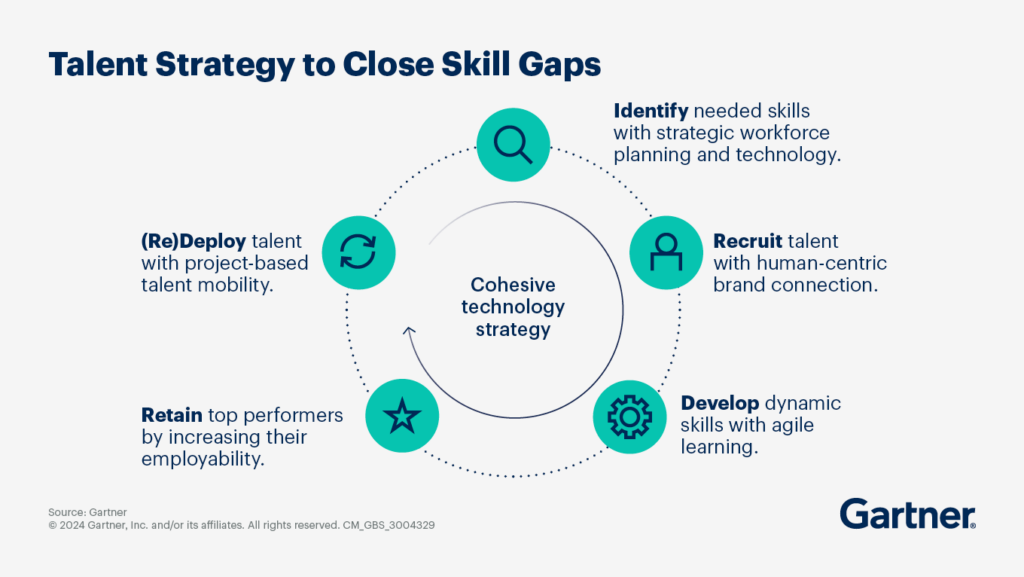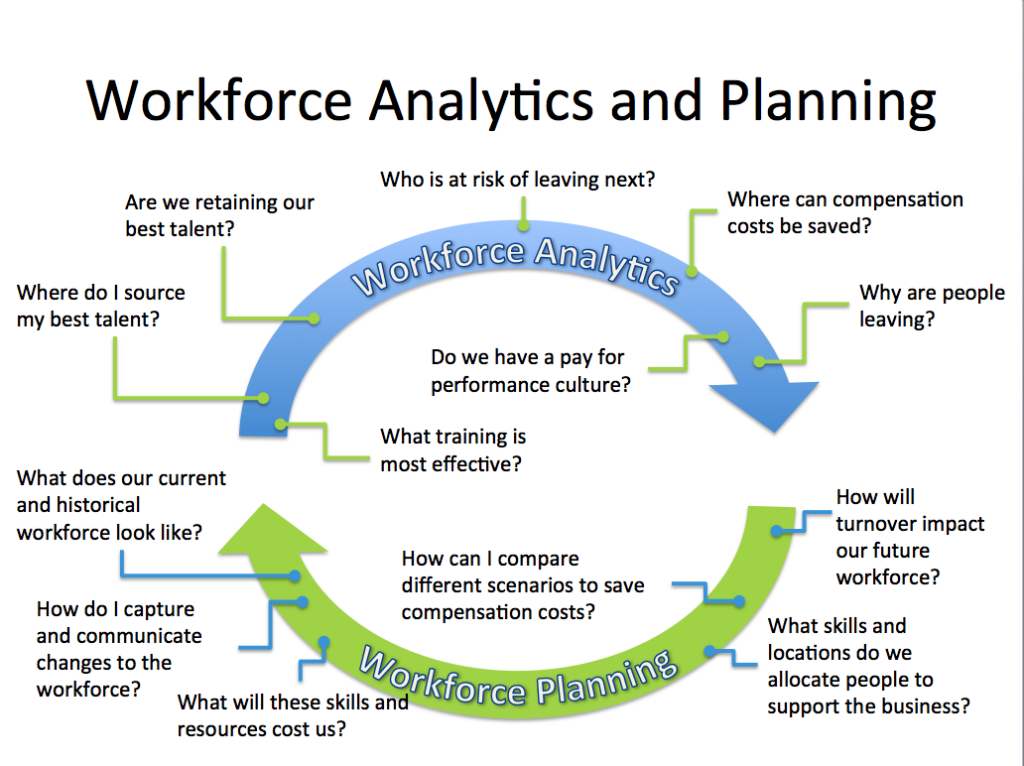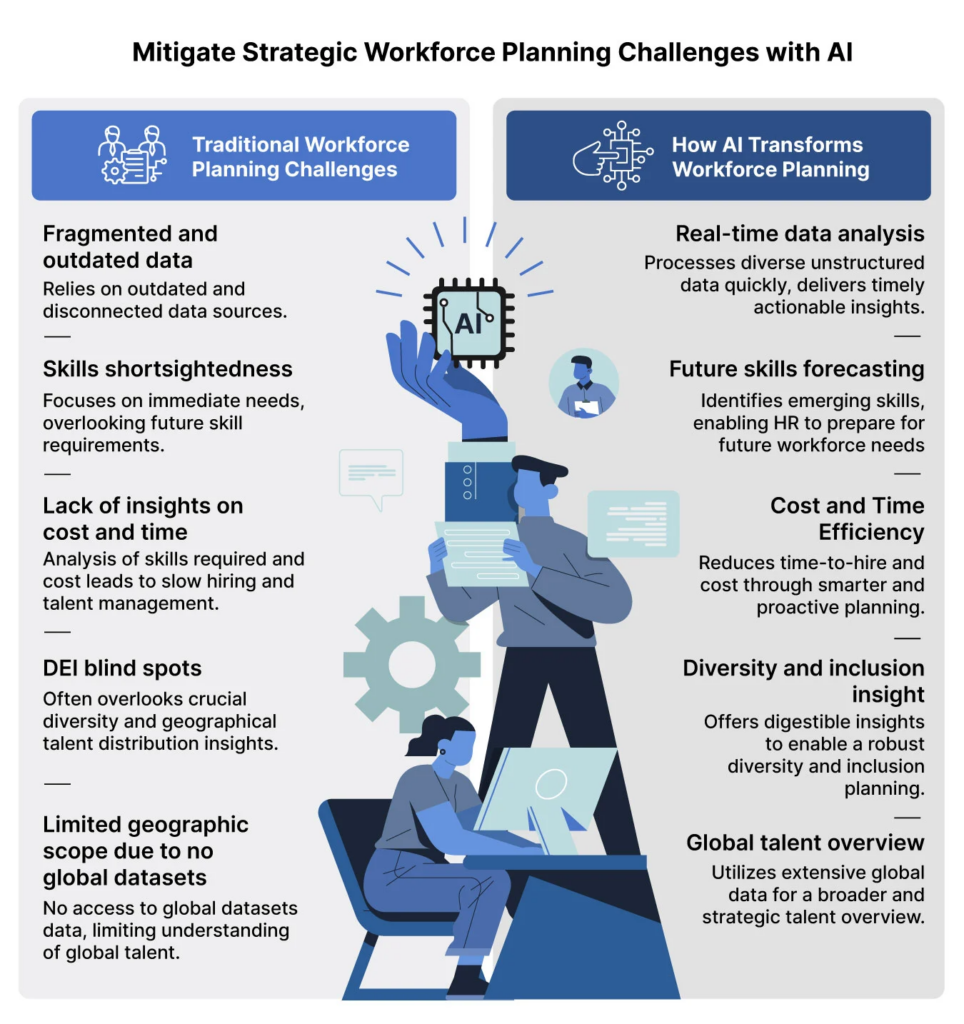The job market is evolving faster than ever, driven by technological advancements, shifting economic landscapes, and evolving employee expectations. To stay competitive, businesses must adapt a great talent strategy to industry-specific demands. This is where workforce planning solutions come into play, transforming how organizations attract, retain, and manage talent through data-driven insights.
How to Approach Talent Strategy in Your Specific Industry?
A talent strategy isn’t just about filling job vacancies—it’s a comprehensive approach to workforce management tailored to specific industry challenges. For example:

Image Source: Gartner
- Tech Industry: Talent shortages in AI and cybersecurity.
- Retail Industry: Seasonal hiring surges and customer-facing roles.
- Manufacturing Industry: Skilled labor shortages due to automation and aging workforces.
To navigate these challenges, businesses must deploy specialized workforce planning solutions that deliver actionable insights by analyzing industry-specific talent data.
What Are Workforce Planning Solutions?

Image Source: Prohance
Workforce planning solutions are tools and platforms that help organizations forecast talent needs, manage skill gaps, and create long-term hiring strategies. They use AI-powered analytics, talent data, and predictive models to provide real-time insights into the job market.
Core Components of Workforce Planning Solutions:
- Talent Demand Forecasting: Predicting future hiring needs based on business growth and market trends.
- Skill Gap Analysis: Identifying missing skills in the workforce and planning targeted recruitment or training.
- Recruitment Automation: Streamlining hiring processes with AI-driven tools.
- Employee Retention Analytics: Using historical data to predict and reduce employee turnover.
How Industry-Specific Insights Are Shaping Talent Strategies?
1. Tech Industry: Filling the AI Talent Gap
The tech industry faces a severe shortage of AI and data science professionals. Companies that rely on generic hiring methods struggle to compete. Workforce planning solutions with industry-specific talent data help by:
- Mapping Talent Supply and Demand: Highlighting regions with abundant tech talent.
- Skill-Specific Recruitment: Matching precise technical skills with job requirements.
- Compensation Benchmarking: Offering competitive salaries based on real-time data.
Example: A leading fintech firm used predictive hiring tools to identify emerging data science talent hubs, reducing recruitment time by 40%.
2. Retail Industry: Managing Seasonal Workforce Fluctuations
Retail businesses experience hiring spikes during holidays and sales events. Traditional recruitment methods can’t keep up. Advanced workforce planning solutions allow retailers to:
- Anticipate Seasonal Trends: Predict demand based on historical sales and hiring data.
- Temporary Staffing Pools: Maintain a pre-vetted talent database for quick onboarding.
- Automate Shift Scheduling: Optimize staff allocation with AI-driven rosters.
Example: A global e-commerce giant reduced peak-season staff shortages by using predictive analytics to pre-book seasonal workers.
3. Manufacturing Industry: Overcoming Skilled Labor Shortages
The manufacturing sector grapples with an aging workforce and skills mismatches due to technological advancements. Workforce planning solutions can:
- Forecast Retirement Trends: Allow proactive recruitment or upskilling.
- Automate Job Matching: Use AI to pair candidates with specialized roles.
- Training Needs Analysis: Identify reskilling opportunities based on evolving job requirements.
Example: A leading automotive company implemented an AI-driven training program, reducing skill shortages by 30% within a year.
How AI is Transforming Workforce Planning Strategies?

Image Source: Draup
The integration of AI in workforce planning solutions elevates the entire talent strategy process by enabling:
- Real-Time Data Analysis: Providing instant insights into job market trends.
- Predictive Modeling: Anticipating hiring challenges before they occur.
- Automated Candidate Screening: Accelerating recruitment processes through AI-powered filters.
AI-driven platforms also ensure that businesses maintain a competitive edge by continuously adapting to market changes.
Conclusion:
As industries face ever-changing labor dynamics, workforce planning solutions will become indispensable for businesses aiming to maintain a competitive edge. By leveraging industry-specific talent data, organizations can craft precise talent strategies that align with market realities, ensuring long-term success.
Key Takeaways:
- Industry-Specific Focus: Tailor your hiring approach based on unique sector challenges.
- Data-Driven Insights: Use AI-powered analytics for informed talent management decisions.
- Proactive Planning: Stay ahead of talent shortages through predictive forecasting.
Explore how JobsPikr’s workforce planning solutions can empower your business with industry-specific talent data and actionable insights. Stay ahead of market trends, optimize your recruitment process, and build a future-ready workforce. Sign up today!



